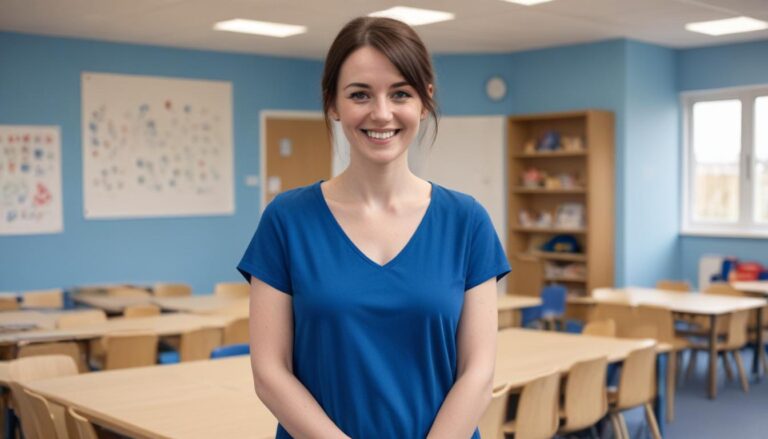
Summary
- Physical Development: Play enhances gross and fine motor skills through activities like running, climbing, and arts and crafts, laying the groundwork for tasks such as writing and self-care.
- Intellectual Development: Engaging in play stimulates cognitive growth, promoting problem-solving and creativity, as seen in puzzles and construction activities.
- Language Development: Playful interactions foster language skills, expanding vocabulary through storytelling and songs, while encouraging communication through role play and games.
- Emotional and Social Development: Play allows children to express emotions and develop empathy through cooperative games and role-playing, teaching them to navigate social interactions and resolve conflicts.
This guide will help you answer 2.1. Outline ways in which play can help children’s learning in each of the following developmental areas: a) physical b) intellectual c) language d) emotional e) social.
Play is an essential part of children’s development. It enhances physical, intellectual, language, emotional, and social learning in various ways. Let’s explore how play can aid each developmental area.
Physical Development
Play encourages children to move their bodies, developing essential physical skills.
Gross Motor Skills
Activities like running, jumping, and climbing enhance large muscle groups.
- Outdoor Play: Playing tag or using climbing frames builds strength, coordination, and balance.
- Ball Games: Kicking, throwing, and catching develop coordination and spatial awareness.
Fine Motor Skills
Fine motor skills involve smaller movements using hands and fingers.
- Arts and Crafts: Cutting, gluing, and drawing improve dexterity and hand-eye coordination.
- Building Blocks: Manipulating small items enhances precision and control.
These activities form the foundation for tasks such as writing and self-care.
Intellectual Development
Play stimulates cognitive growth, promoting problem-solving and critical thinking.
Problem Solving
Children learn to solve problems through interactive play.
- Puzzles: Encourages logical thinking and perseverance.
- Construction Play: Building with blocks fosters creativity and spatial reasoning.
Creativity and Imagination
Creative play nurtures innovative thinking.
- Role Play: Dressing up and acting out scenes allow children to explore different scenarios and perspectives.
- Artistic Activities: Painting and modelling with clay develop creative expression.
These experiences encourage flexible thinking and adaptability.
Language Development
Language skills blossom through playful interactions.
Vocabulary Expansion
Children learn new words in context.
- Storytelling: Listening to and creating stories builds vocabulary and comprehension.
- Singing and Rhymes: Develop phonetic awareness and rhythm.
Communication Skills
Play offers opportunities to practise verbal and non-verbal skills.
- Role Play: Encourages conversation and understanding of social cues.
- Interactive Games: Turn-taking and discussion enhance effective communication.
Language play nurtures listening, speaking, and understanding.
Emotional Development
Play provides a safe space for exploring feelings and self-awareness.
Self-Expression
Through play, children express and understand their emotions.
- Role Play: Acting out feelings helps children recognise and articulate emotions.
- Music and Movement: Dancing or playing instruments provides an emotional outlet.
Empathy and Understanding
Children learn to relate to others through shared play experiences.
- Cooperative Games: Working together fosters empathy and understanding.
- Storytelling: Stories about different characters and emotions enhance emotional literacy.
These experiences support the development of emotional intelligence.
Social Development
Play is an important aspect of learning to interact and build relationships.
Cooperation and Teamwork
Social play teaches children how to work with others.
- Group Games: Involve collaboration and understanding roles within a team.
- Building Projects: Working together on a shared goal enhances teamwork.
Conflict Resolution
Children learn to navigate social challenges through play.
- Negotiation in Play: Sharing and taking turns teach conflict resolution skills.
- Role Play: Acting out disputes provides practice in finding solutions.
Social play fosters communication and interpersonal skills.
Providing the Right Environment for Play
As an early years practitioner, creating the right environment enhances play’s benefits.
Safe and Stimulating Spaces
- Indoors: Provide age-appropriate toys and materials that encourage creativity and exploration.
- Outdoors: Ensure safe areas with equipment that promote physical activity.
Supportive Interaction
Actively engaging with children during play can extend their learning.
- Guidance: Offer gentle support to enrich play experiences.
- Observation: Understand each child’s needs and interests to tailor activities accordingly.
Final Thoughts
Play is more than just fun; it’s a vital component of learning. By incorporating diverse play activities, you can support children’s growth in all developmental areas. Tailoring play experiences to meet individual needs helps children flourish in physical, intellectual, language, emotional, and social dimensions. Your role in facilitating and nurturing play ensures a well-rounded approach to early childhood education.
Subscribe to Newsletter
Get the latest news and updates from Care Learning and be first to know about our free courses when they launch.




